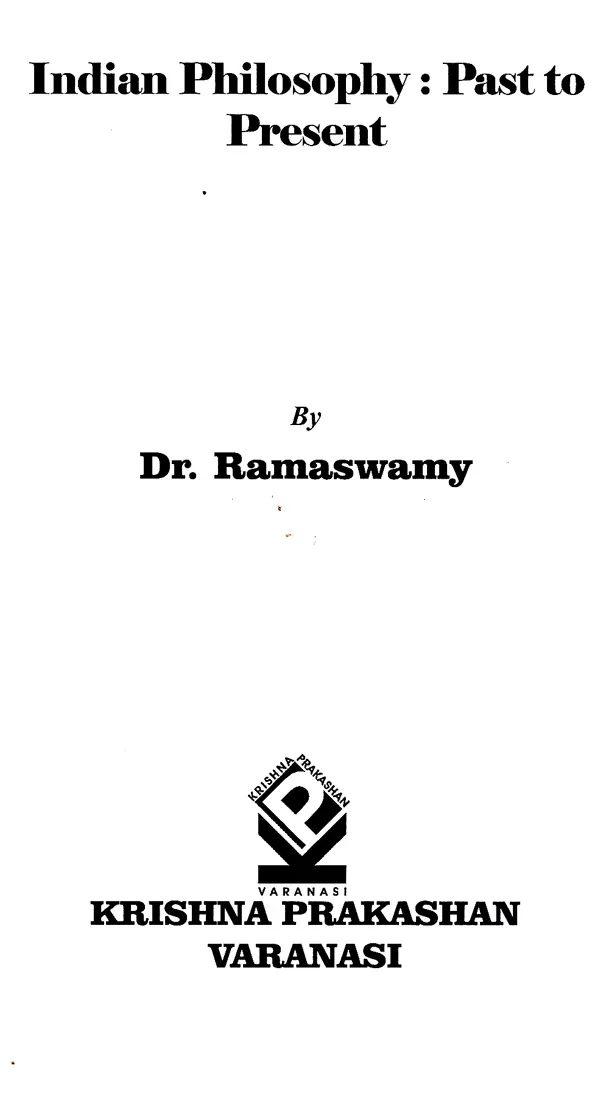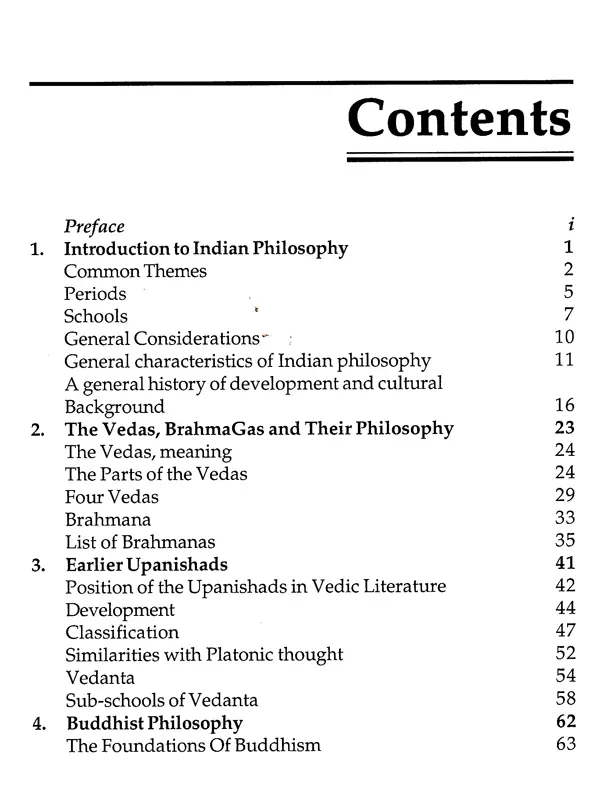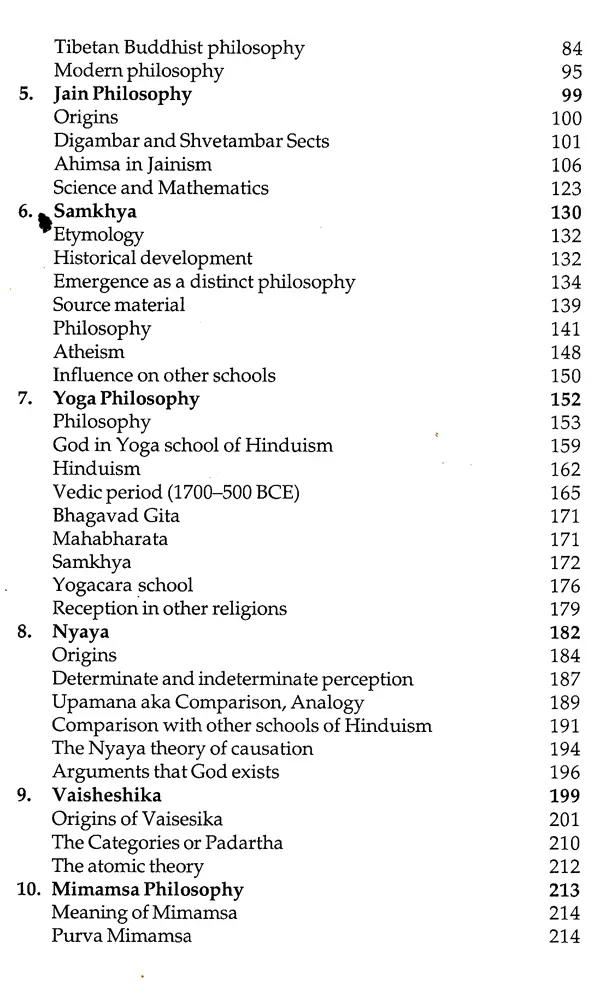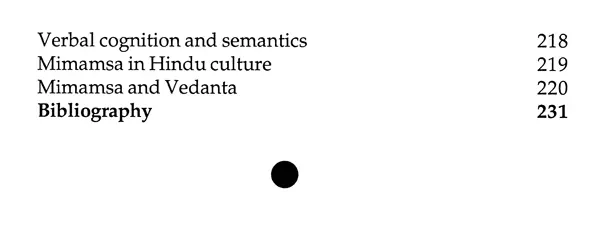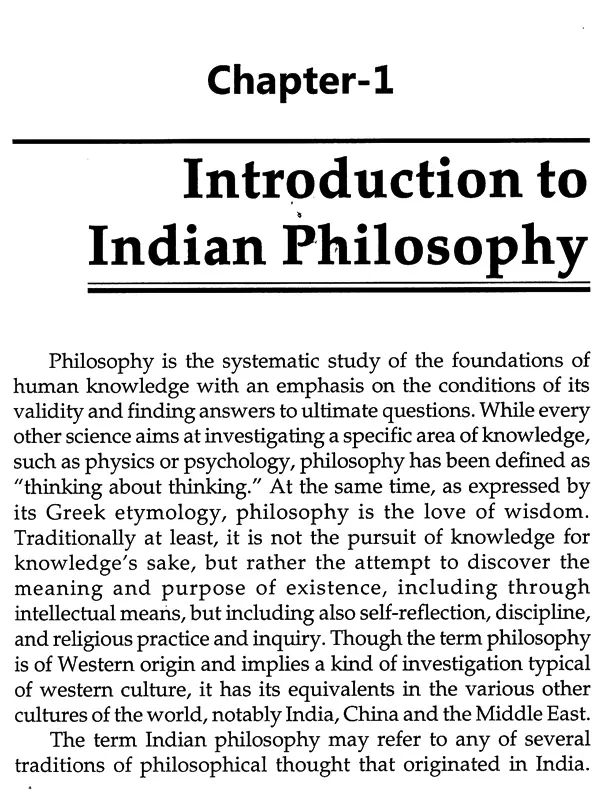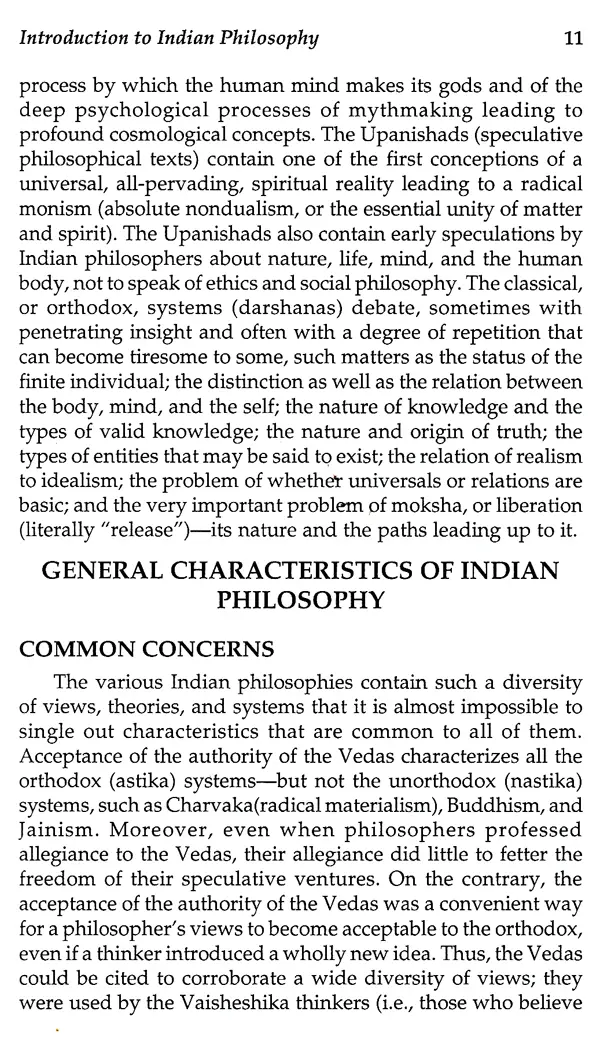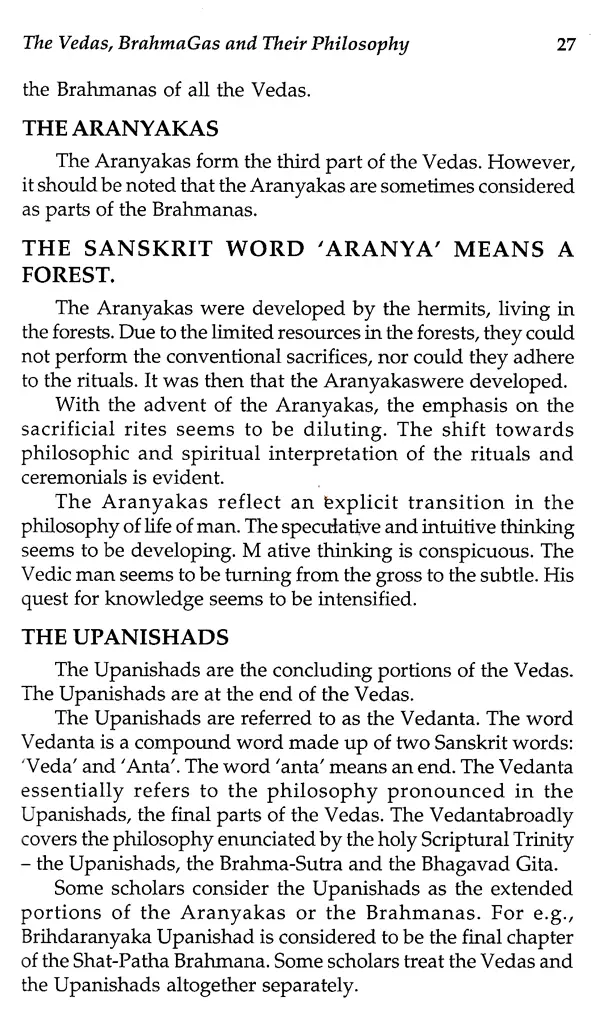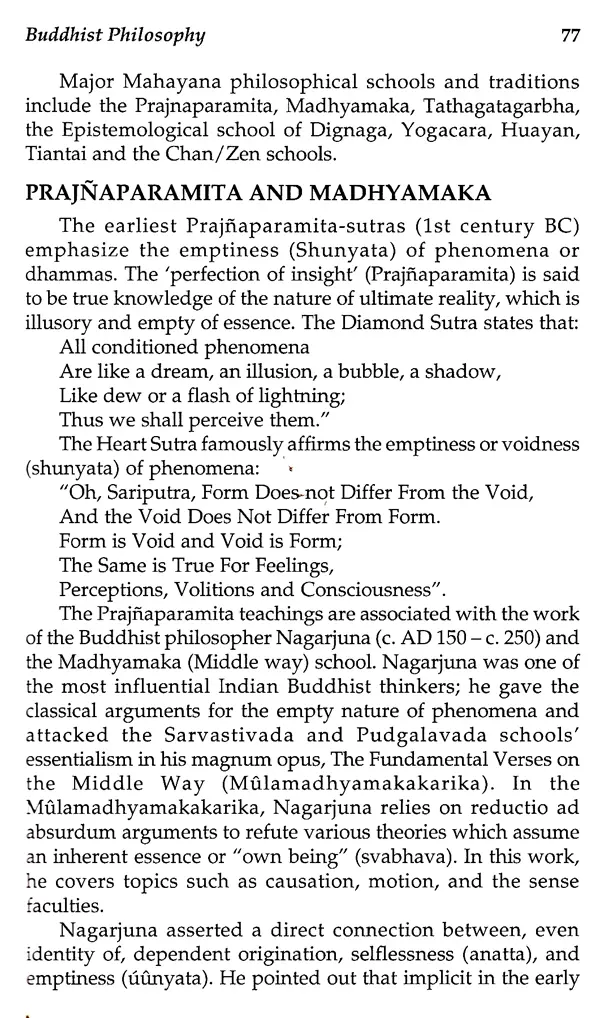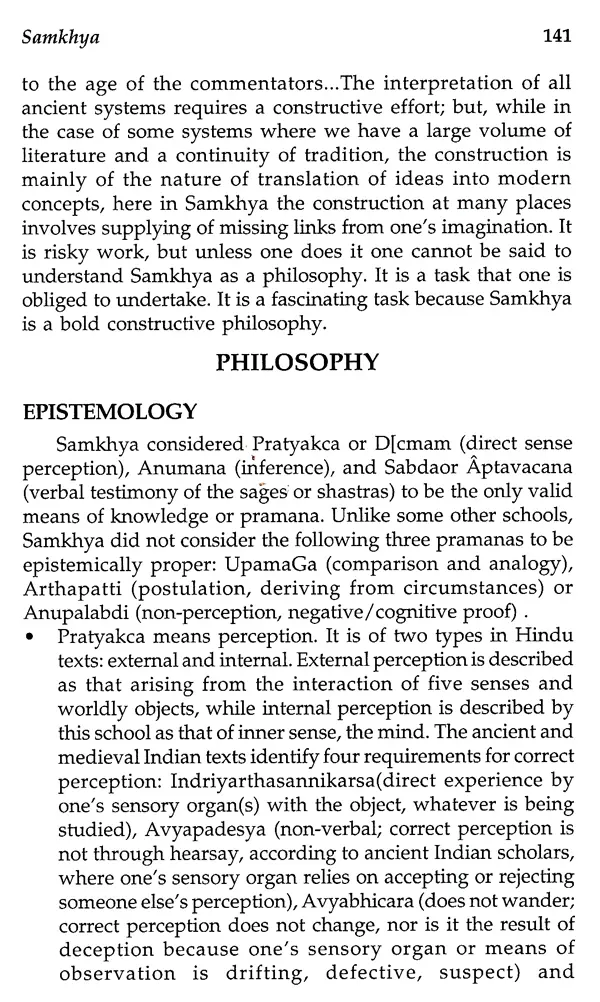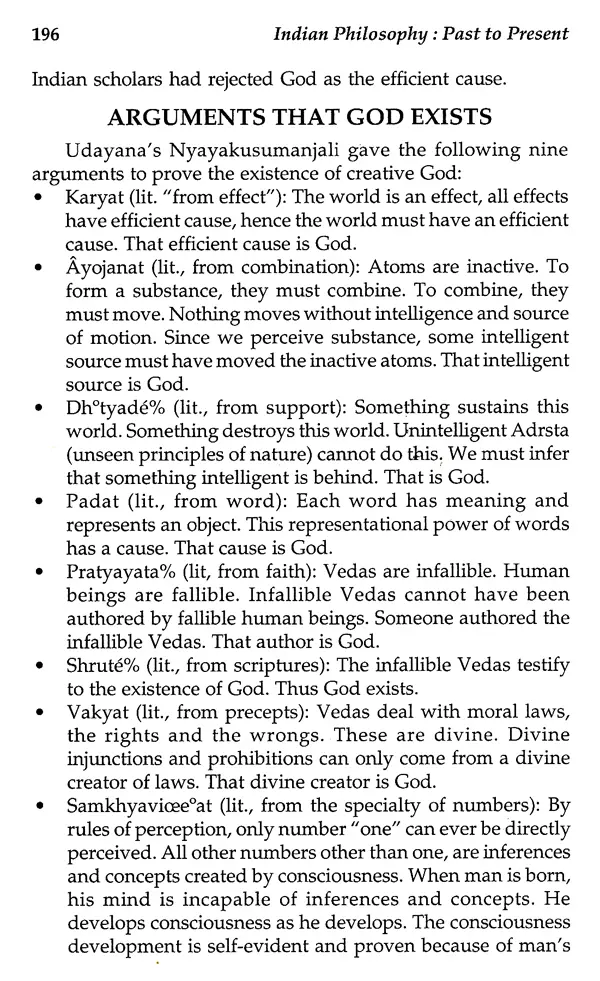
Indian Philosophy: Past and Present
Book Specification
| Item Code: | UAN019 |
| Author: | Dr. Ramaswamy |
| Publisher: | Krishna Prakashan, Varanasi |
| Language: | English |
| Edition: | 2018 |
| ISBN: | 9788193797600 |
| Pages: | 250 |
| Cover: | HARDCOVER |
| Other Details | 8.90 X 5.90 inch |
| Weight | 440 gm |
Book Description
Hindu philosophy constitutes an integral part of the culture of Southern Asia, and is the first of the Dharmic philosophies which were influential throughout the Far East. The great diversity in thought and practice of Hinduism is nurtured by its liberal universalism.
Centuries before the western (notably Greek) tradition developed its own forms of philosophical speculation, India already had well-developed schools of philosophy. Most followed spiritual and idealistic lines involving speculation about the unity in diversity, giving Hindu polytheism a clear theistic bent. In these forms of speculation, Brahman was often seen as the underlying, unitary and universal Being of which the various divinities were mere expressions. At the same time, Brahman was often seen as being ultimately one with Atman, the equivalent of the human soul. Nevertheless, atheistic and materialistic philosophy also existed in the same environment.
The extent of the direct link between this philosophical speculation and the later Greek philosophy is a matter of dispute. An influence of Indian thought on Middle Eastern, including Hebrew, thought has also been suggested. What is certain is that, to one degree or another, the Ancient Hindu tradition and the Ancient (though less ancient) Greek tradition, being both part of the Indo-European civilization has interacted, with India being the source. Plato in particular is often said to have been under the influence of the Hindu wisdom tradition.
All the schools of Indian philosophy are characterized by some common themes. Indian philosophy conceives of man as spiritual in nature, and relates him to a spiritual or metaphysical concept of the universe. Indian philosophy is intimately associated with practice in everyday life. It takes an introspective approach to reality, concerning itself with knowledge of the inner life and self of man (atmavidya), rather than with the nature and structure of the physical world. Indian philosophy is predominantly idealistic. Intuition is often accepted as the only method for knowing the ultimate truth; truth is generally not "known" intellectually, but must be "realized." Indian philosophy accepts the authority of ancient philosophers and innovations are represented as extensions of older systems of thought. Flexibility and the tendency to synthesize are also characteristic of Indian philosophy. Indian schools generally embody the doctrines of karma and rebirth; man must be perfected before he can achieve salvation. Except for the Carvaka school, all accept the moral order of the universe, and justice as the law of moral life.
**Contents and Sample Pages**
